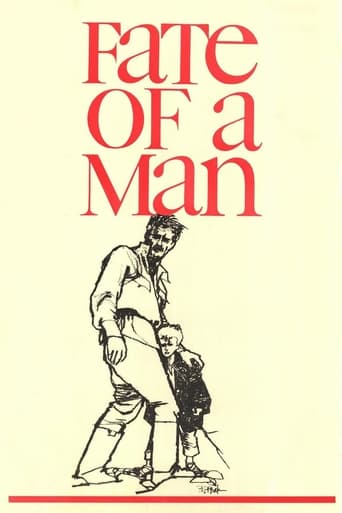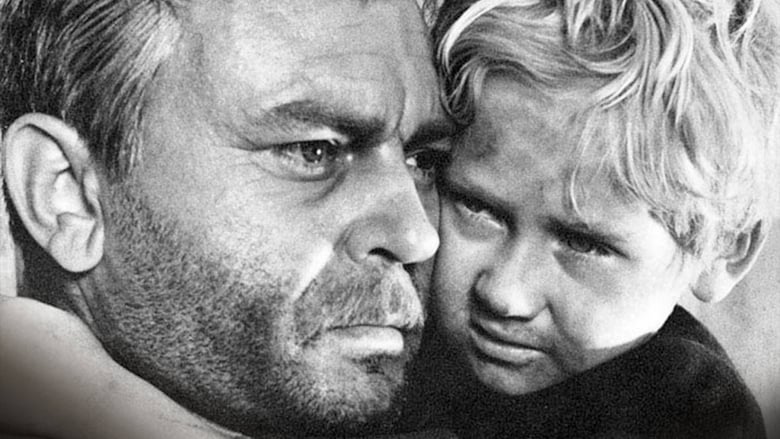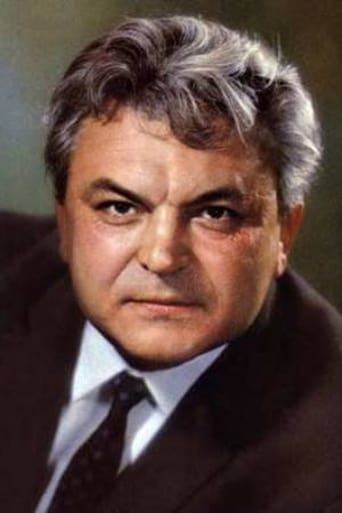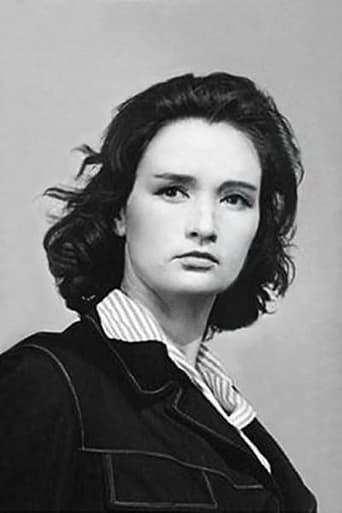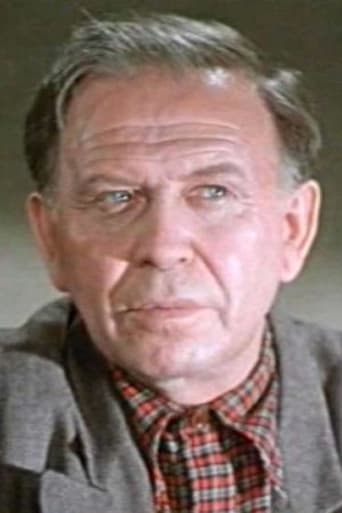Fate of a Man (1959)
The story of a man (Andrey Sokolov) whose life was ruthlessly crippled by World War II. His wife and daughters were killed during the bombing of his village, he spent some time as a prisoner, and his only son was killed in action only a few days before the victory...
Watch Trailer
Cast


Reviews
the novel by Sholokhov. the performance of Bondarchuk. the wise script. the close-up. and the life of a man who seems be only new Job. a film who impress not only for the drama but for its profound poetry of small details. a confession. and the hope. the war's traces. and the future as new beginning. it is part of a long chain who defines the Soviet cinema as artistic treasure. it is, in same measure, fruit of a political situation. but, more important, it is a fine work. because it reflects human feelings, duties and pain out of ideological circle. because it is an universal story. and one of beautiful examples of high cinema. that could be all. not a great show but useful exercise about the force of art. and, sure, for the Eastern public, a travel in history, against wars, crisis, disasters. and cases of survive.
After the Russian Civil War, the Russian worker Andrei Sokolov (Sergei Bondarchuk) marries his beloved Irina (Zinaida Kirienko) and seventeen years later, the couple has a son and two daughters. The family man Andrei is summoned by the Red Army as truck driver in the World War II and he promises to Irina that he will return to his family. Andrei drives through a road that is bombed and he is captured by the Germans and suffers in the prisoner camps. He finds strength to resist the maltreatment of the German soldiers thinking in Irina and his children. Andrei succeeds to escape from the Germans and finds that Irina and their daughters were killed during the bombing of their house and his son Anatoly is a Captain of the Russian Army. Near to the end of the war, Anatoly dies and Andrei does not see any motive to live. Until the day that she sees the starving orphan Vanja begging on the streets of Uryupinsk."Sudba Cheloveka" is a magnificent Russian anti-war film with the nightmarish saga of a survivor of World War II. The narrative is perfect, with top-notch screenplay, direction, performances, cinematography and scenarios. The film gives the sensation of documentary and I am not sure whether the director Sergei Bondarchuk used in his debut inserted footages to give more realism to the movie. The sequence when Andrei meets the orphan boy is touching and never corny and closes this little masterpiece with golden key. My vote is nine.Title (Brazil):"O Destino de um Homem" ("The Destiny of a Man")
The work is absolutely stunning visually, at times radical in its framing. It is perfectly understandable that since the film was made only 5 years after Stalin's death the political strictures under which it was made forced the director to be careful to avoid depicting the persecution suffered by returning Soviet POW's under his rule, but by focusing on the suffering they, and most particularly the protagonist, experienced as prisoners in German work camps and the steadfast and heroic endurance they maintained in the face of cruelty and hardship he is completely successful in politically rehabilitating them as patriots, both for their contemporaries and for Soviet posterity. A beautiful and at times quite moving film. Highly recommended.
This movie is very special in many ways. It is a good movie in cinematic terms because it is aesthetically very impressive and has a good plot structure. On the other hand, this film touches subjects that were taboo in the Soviet Union of the time, and bravely shows parts of the history of the war that had not been part of public discourse at the time. It is also unusual because many Soviet films about WWII ended with an upbeat note, unlike this one."Fate of a Man", as the title of the film translates, is a movie about a Soviet man (Sokolov) who experiences many of the horrors of the war against the Soviet Union. The movie tells his story in a flashback, showing how he is very broken after the war and what led to this. He had lost his family in the war, and had fought in it, he witnessed how his Jewish comrades were singled out and killed, and then he was taken to Germany to do forced labor. There, he suffered all sorts of abuse and barely survived. After the war ends, he goes back home, distressed and unable to find comfort for his emotional and physical pain. The film is very subtle in its depiction of the horrors of war, even though it does not white-wash what happened. As it was the first Soviet film to touch the subject of slave labor during the war, and of the murder of the Soviet Jews, it does this carefully, emphasizing the humanity of the victims of these cruel crimes without focusing on the gore. Together with "The Cranes are Flying" and "Ivan's Childhood" this is one of the first Soviet films about WWII that do not have a happy "we won"-type of ending. These three films were a form of dealing with the suppressed pain of Soviet citizens, after having lost one quarter of their population (27mio.) through the brutal attack by the Nazis. This movie is very impressive and very touching as well. I highly recommend it.

